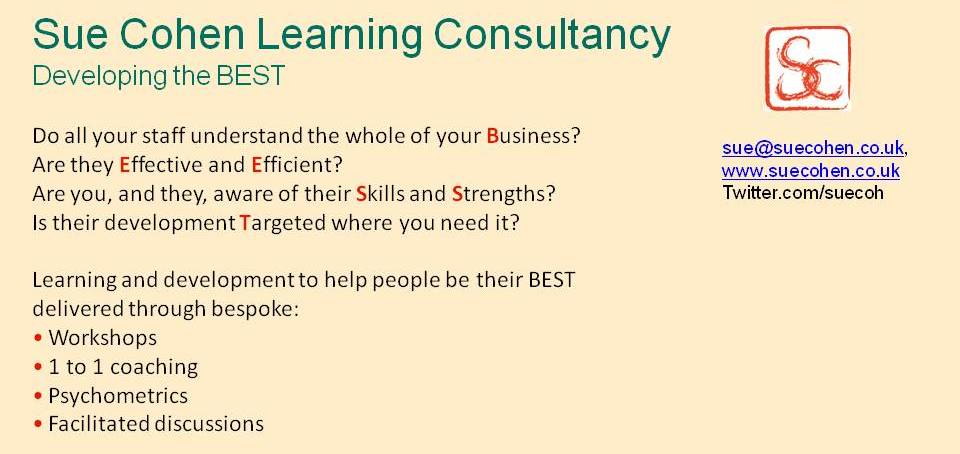skip to main |
skip to sidebar
If listening is core to communication and building relationships with new contacts, what about maintaining relationships with existing customers? No doubt we all deal with call centres for many of our services and have horror stories to tell of relayed phone conversations and repitition and hanging on ...
Yet, many people have DDI service and personal voicemail, in businesses of all sizes with, or without, reception and secretarial back up - how well do they use these facilities?
I called someone recently, with a senior role in a medium-sized organisation, using his DDI. His voicemail message was fine, except that it wasn't dated and I wanted to know if he was around that day, so I dialed 0 for reception and asked if he was in. She just put me straight back through to his line and voicemail!
Some people set their voicemail message daily or weekly and others don't, with a promise to call back "as soon as I can" or "within three hours" maybe "the next working day". And many people have a system for checking each others' messages and either passing them on or placing a holding call.
Needless to say "as soon as I can" or "within three hours" become meaningless very quickly, when they are not returned. If your customers struggle to get through to you when they need to, for whatever reason, what will stop them going elsewhere? And, if you answer the phone for others, as a colleague or a receptionist, listen carefully to the caller and what they want, before just putting them through.
If you would like independent views on your telephone answering service or help building the communications culture you want, call us.
Find Sue on LinkedIn and at http://www.suecohen.co.uk/
Contact sue@suecohen.co.uk or on 07971 400653
Communication is also about how you put your own message across for others to listen to. Start with the words and think carefully about the message you want to get across, then the voice, then the body language.
If you need to give your opinion, then make it clear for example use “I”, not “we”, unless you are truly speaking for a group.
When you need to give a serious message or bad news, keep your face fairly static, your tone even and firm and your gestures to a minimum. Then, with a positive message, be more animated and cheerful.
It sounds straightforward written like that, but it takes development. These skills can be developed with practice and training. Contact Sue for ideas on developing your communication skills.
Find Sue on LinkedIn and at http://www.suecohen.co.uk/
Contact sue@suecohen.co.uk
And that’s where we have a problem. How many times have you read an email / online posting / letter and thought “I don’t like the tone of that” or similar?
I thought vocal tone had to be heard … What happens to your message when you rely on the written word instead of a phone-call or a meeting?
Try this exercise. Read the following statement out loud, with the emphasis on a different word each time and then decide what it really means.
I didn’t say he’d stolen the cash.
Listening is a key part of communication skills which can be developed with practice and training. Contact Sue for ideas on developing communication skills.
For more on the exercise, click here
Find Sue on LinkedIn and at http://www.suecohen.co.uk/
Contact sue@suecohen.co.uk
I met someone recently who does a lot of telephone research and many people have had first interviews on the phone. So, how do you listen well when you can’t see the person? Some people think it should be easier to concentrate on just one channel of communication, without being distracted.
Unfortunately, many people don’t concentrate better when they are on the phone – they distract themselves by looking at their emails, or looking around them. As an alternative, make notes during the conversation, even if you don’t think you will need to keep them. And we are used to interacting with people when we see them and use the visual information to make our decisions (whether this is conscious or not).
Talk, and gesture, normally – they can’t see you, but the effect translates into your voice. Observe others on the phone and pay attention to how they sound when they sit, hunched over their desks, eyes on their pc compared to the ones sitting up, making notes and smiling and nodding throughout.
Listening is a skill – it can be developed with practice and training. Contact Sue for ideas on developing your listening skills.
Find Sue on LinkedIn and at http://www.suecohen.co.uk/
Contact sue@suecohen.co.uk
Oft quoted is the phrase “two ears, one mouth, use in those proportions”. If you want to demonstrate you are really listening, then I would aim for something closer to 80:20. Ask a question and ……… pause. If you’ve just met them, then ask what they do and follow-up to show you are really paying attention. If most people are in the same position, they will flip the question back to you in a fairly short space of time and ask you.
Listening is an activity, not a spectator sport.
Click here for tips on Active Listening
Find Sue on LinkedIn and at http://www.suecohen.co.uk/
Contact sue@suecohen.co.uk
So, there we have it, networking is a listening game to build relationships. But, we knew that anyway. The key questions are:
• Are you listening as well as you can?
• Are you being listened to well?
• Have you established with whom you need to build further relationships?
• Do you know which are possible customers? suppliers? referrers?
• Does it matter to the way you build the relationship?
So, if your networking in 2010 is going to help you build all 3 of these types of relationships, not just widen your social circle, you need to plan how you are going to achieve this, be it the networking events you go to, your skill at these events and the follow up or working with others whose skill level or interest is not the same as yours.
Find Sue on LinkedIn and at http://www.suecohen.co.uk/
Contact sue@suecohen.co.uk
If networking isn’t just about collecting cards, what is it? To me, it’s the start of relationship building, it isn’t selling, it is partly marketing and it is based on excellent listening skills.
My experience with people I’ve met in business, not just as training participants, leads me to think that this is part of the problem – people don’t listen well.
Play the listening game, not the card game. How do you know when you are really listening? More importantly, how can others tell? If you don’t get a chance to tell the other person about yourself, that’s fine for the first meeting. I’m not quite sure how you can conclude in a first meeting that there is no way you could help each other, or pass on referrals or contacts, even if you’ve decided you don’t like them, so make sure you get their card and call them for a follow-up.
Find Sue on LinkedIn and at http://www.suecohen.co.uk/
Contact sue@suecohen.co.uk

